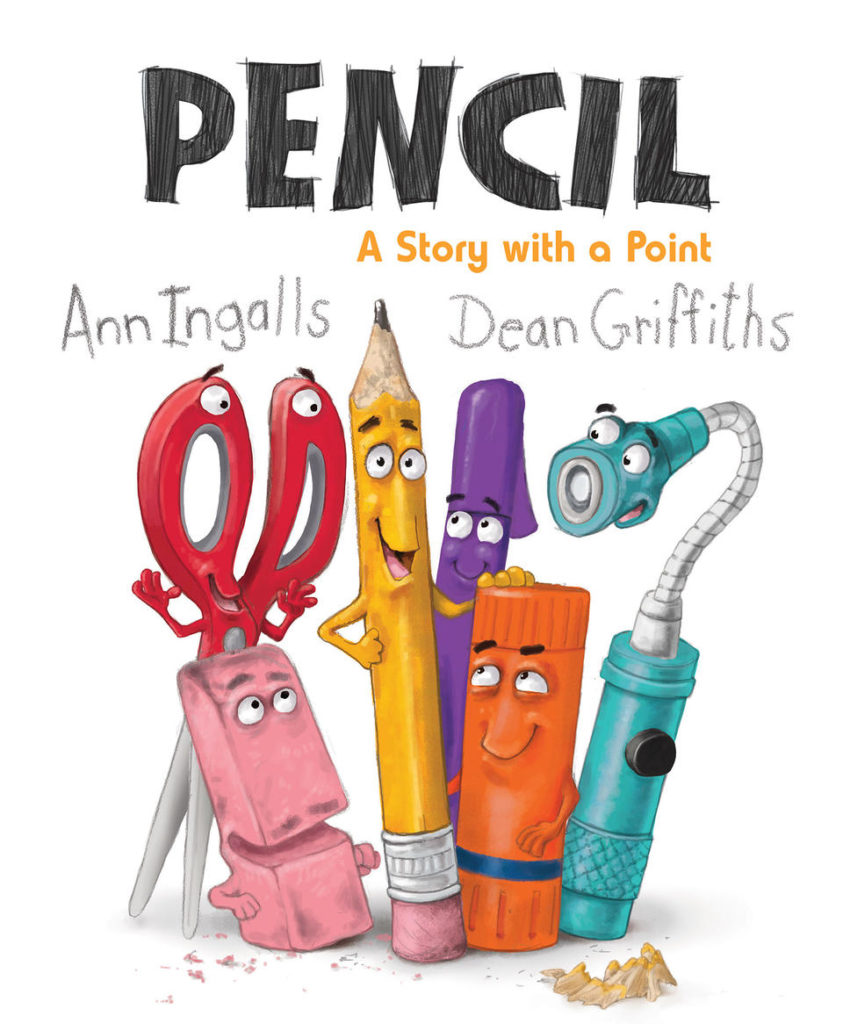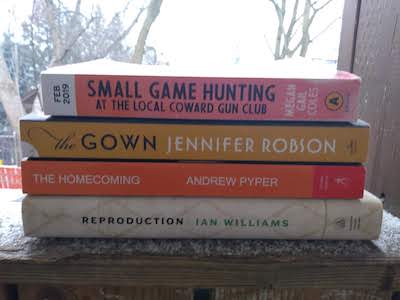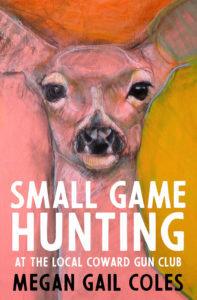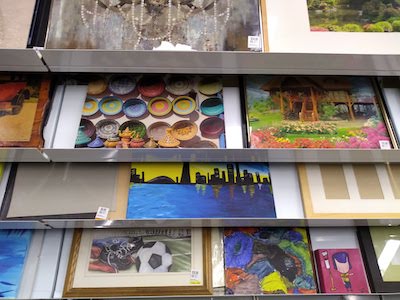February 12, 2019
Gleanings

- By-gone letters pull us intimately into the moment of their writing and thus seem truer than memories.
- I like to believe that leaning is love.
- Literature strengthens our imagination. If we all have the tools to try to imagine a better world, we’re already halfway there.
- I like the smell of coffee percolating, the way tulips nod their heads when brought inside, handwritten notes and letters, walking barefoot in the sand…
- As a writer, what I’ve done is not as important as what I’m going to be doing.
- And I noticed it because I was looking.
- This morning I went out to see if the small dark animal that jumped into the bush beyond my study window left tracks in the snow.
- Who needs a canvas when you’ve got walls!
- Undoing crochet still leaves you with all the yarn, after all: you just have to make something else out of it.
- It’s a stance, bewilderment. It’s a way of entering the day, and of thinking differently, even in times that seem to call for its opposite.
- I recognize that this sadness is the cost of loving my daughter and I wouldn’t change that for anything.
- But it is not true that identity politics are necessarily divisive. Difference is a fact of life, to which divisiveness is only one response. Inclusiveness is another: not just tolerating but celebrating difference, fighting for the rights of all, not just the few.
- My Year of Slow.
Do you like reading good things online and want to make sure you don’t miss a “Gleanings” post? Then sign up to receive “Gleanings” delivered to your inbox each week(ish). And if you’ve read something excellent that you think we ought to check out, share the link in a comment below.
February 11, 2019
On Asking for Things

I think I’ve been audacious precisely twice in my life, and I’ve written about one of those times before: the time I encountered hydro workers on a country road and pulled over to ask if I could have a ride in their bucket. “I can’t think of a reason why not,” was the worker’s incredible reply, and so we had an adventure, just because we’d had the nerve to ask for it. But such nerve, for me, was uncharacteristic, and while I will forever wish I was the kind of person who was ever asking for bucket rides, that day was an anomaly. Instead, I’m pretty religious about following the rules, keeping to the speed limit, staying in my lane, and watching spacing.
(“If we give one out to you, we’ll have to start giving them out to everybody,” I once told a patron when I worked in a library, and he’d asked to borrow a pencil. Libraries, with their decimals and rules, are my natural habitat, and the habits I acquired there have proven awfully hard to break. At my local branch, I still get rankled when I see children eating crackers by the board books, scattering crumbs across the floor.)
The other time I was audacious was completely by accident, or ignorance. When I was seventeen, I spent a week in Edinburgh, where my aunt, uncle and cousins were living for a year, by which I meant that my youthful naivety (and stupidity) was unleashed on the international community. I was a ridiculous human being, and insisted on wearing pyjamas on the plane, WHICH WAS NOT GLAMOUROUS. I also thought the whole point of travel was to try out the McDonalds menu in other cities. In Edinburgh, the commercial streets were lined with signs that said, “To Let,” and every time I saw one, I pointed and shouted, “Toilet!” I had to purchase a second suitcase in a charity shop in order to bring home the supply of chocolate bars I’d bought on my trip. And even with all this, my cousin consented to spend time with me. She is a very understanding person, and to this day (mysteriously, on her end) one of my dearest friends.
We spent a week together, aimless and kind of dumb, eating McDonalds, and visiting castles, and TopShop, and then one day we walked past a hair salon and there was a sign in the window: OAP Haircuts, £3. Which I thought seemed like a very reasonably price for a haircut, so I went in and asked for it. “I would like an OAP haircut, please.” I recall how the staff responded kind of strangely, but I just wrote that off as being because they didn’t much chance at this salon to cut the hair of a nubile young lass with long chestnut hair—everyone else in the place was kind of old, see? And afterwards, all this was just a funny story I told, about the time I went to Scotland and got my hair cut (which is far more characteristic than the bucket ride, if I’m being honest). We even took a photo to remember it by.

It was not until years later that I figured it all out, what an OAP haircut actually was, why everyone else in the salon had come in for a set. That an OAP is an “old age pensioner” (surely this had come up in Adrian Mole. How had I missed it) and what must the woman at the desk had thought when I walked into the place asking for a senior’s discount? (On the other hand, I was foreign. Being foreign helps you get away with so many things. Which makes me realize that “I think I’ve been audacious precisely twice in my life” is not exactly accurate, because doing the year we lived in Japan, we did audacious things all the time. As gaijin, no less was expected of us.)
My biggest takeaway from all of this is that sometimes, if you want a thing, all you’ve got to do is ask for it. Sometimes, due to sheer audacity—accidental or otherwise—the person you’re asking will have no choice, but to just give it to you. (Unless it is a pencil, and I am working at the library circulation desk. Because if I gave one to you, I’d have to give one to everybody.) That being naive and ignorant enough ask for a thing can sometimes actually be the key to getting it. And that’s not the whole story, of course, and anyone who tells you that your consciousness is the key to unlocking the universe IS LYING. But still, there is power in asking. Sometimes it’s as simple as that.
February 8, 2019
Pencil: A Story With a Point

I will admit to being a bit wary of Pencil: A Story With a Point, by Ann Ingalls and Canadian illustrator Dean Griffiths. I am not convinced that the world necessarily needs more stories about anthropomorphized writing or colouring implements, plus I’d flipped through and saw it was also a story about the perils of too much screen time, and I’m wary of morals and screen fear-mongering. But the illustrations are very appealing (including very cool endpapers) so I sat down to read this with my daughter, and told her, “If we’re going to like this book, it’s going to have to be really good.”
And it was. Primarily, because (as might be discerned from the book’s subtitle) Pencil is playful with language and we never got tired of the puns–”You don’t measure up,” says the ruler in the junk drawer, alongside the spare battery who says, “He’ll get a real charge out of that/ ‘”Happy to hold things together,” said Paper Clip and Tape.’ It goes on, ‘”You’re a cut above the rest,’ said Scissors/ “Our friendship is permanent,” said Marker.’
And while this indeed a pencil versus tablet story for our screen saturated age, it’s also more interesting than just that, about a boy who loved his pencil until he abandoned it for tablet pursuits, and then Pencil was rescued from the junk drawer by the boy’s sister, and was there to see it happen: the tablet crashing to the floor and breaking, the boy distraught. Is there anything that Pencil can do?
The part where Pencil fails to make the boy feel better by showing him all the awesome things pencils can do (“He could be a tent pole for a really small tent.”) was very funny, and then, with the help of his junk drawer friends, Pencil arrives at an ingenious solution. Pencil and the boy are reunited. A happy ending to this warm and humorous book which demonstrates that a story with a point is not necessarily a bad thing. It’s all in the delivery, and this one is done right.
February 7, 2019
When Old Books Are New Again

In December, I posted a photo of the book I was reading, Busman’s Honeymoon, by Dorothy L. Sayers (which I purchased at Sleuth of Baker Street), and my friend Leah (a Sayers fan) commented in disbelief that there existed a copy of a Dorothy L Sayers book that was brand new. “I bet the pages don’t even fall out of that one,” Sara added to our conversation, and they really didn’t. And as the only other Sayers novels that I’ve read before have been cheap and battered paperbacks (one that was withdrawn from the North York Public Library), I understood their amazement at my pristine, brand new, spine un-cracked, and with an attractive cover. What does it even mean to read a Dorothy Sayers novel whose pages aren’t held together with an elastic band and which doesn’t smell like mildew? Surely the experience is a little inauthentic?
But it really wasn’t. Great binding and legible text would only add to the experience of a novel that’s pretty enjoyable in its own right. A fresh book will be approached with a spirit of freshness as well, which was only further demonstrated to me when I received a copy of Edith Wharton’s The Age of Innocence for Christmas later that month.

Of course, it wasn’t just any copy of Edith Wharton’s The Age of Innocence. I’d asked for the edition published by Toronto Gladstone Press (owned and operated by celebrated Canadian book designer Ingrid Paulson), a book I’d decided I had to have when I saw the image of the New York City map circa 1879 inside it. I am a sucker for maps in books, plus there were the opera glasses on the cover, and the beautiful, beautiful spine. Is it possible to fall in love with a book for its spine? Reader, I assure you that it is.
On her website, Paulson describes her mission with Gladstone Press as follows: “Old books aren’t always boring. They aren’t necessarily hard to read. They aren’t the ‘bran’ of literature (good for you, but not much flavour). They just end up looking that way. So I am trying to change that.”

I’ve never read The Age of Innocence before. Honestly, take an objective look at the covers of previous editions and ask yourself why I’d even want to. Because I felt like I probably should, mainly. (Winner of the Pulitzer Prize in 1921!) But I’ve got a personal aversion to languid ladies lounging in chairs, and the 1993 movie tie-in edition makes me uncomfortable—what IS that man doing to poor Michelle Pfeiffer’s neck? But those opera glasses: that’s the book I want to read.

And I loved The Age of Innocence, reading it with a pleasure over a single day during the holidays, nothing bran about it. It was an absorbing story of a once-upon-a-time New York that was also timeless, and daring, grappling with problems of women’s liberation that we’ve still not got our head around a century later. Which is to say that there is nothing stale about this novel, and it was a pleasure to discover it in this beautiful edition whose design provides the freshness that such a book deserves.
- Learn more about Gladstone Press, whose other titles are Wuthering Heights and The Hounds of the Baskervilles. And more books are coming this spring.
February 6, 2019
Winter Reads on the Radio

I was on the radio talking winter reads this morning as ice pellets were falling from the sky. Two of them are books I’ve loved, and the other two are books I’m looking forward to loving. Listen again to my selections here: I come on at 42.10.
February 5, 2019
Small Game Hunting at the Local Coward Gun Club, by Megan Gail Coles

If you hang a pistol in your novel’s title, law dictates that it’s going to go off before the book is over, even if your gun is a metaphoric one. And if the title of Small Game Hunting at the Local Coward Gun Club is not indication enough that this book is not going to be completely painless, its author, Megan Gail Coles even includes a warning: “This might hurt a little. Be brave.” But yes, be brave. Venture forth into this book, where the weather is extreme and feet are freezing, and nobody is holding your hand. Where the atoms fall like snowflakes in a blizzard, instead of orderly, in a straight line, one thing after another, as you’d expect from a more linear text. There are moments when you’ll find yourself lost in the storm, zero-visibility. But just keep going. Be brave.
There are sentences in Coles’ first book, Eating Habits of the Chronically Lonesome, that I have never forgotten, more than four years after I read them first. “The reason Garry did these things was ’cause he couldn’t afford any better. Half of what he earned over at Pretty Paws was carted off to Newfoundland. Child support for an autistic kid he had with Slutty Marie down Gilbert Street, this the result of a one night stand./ Have you ever heard a sadder story, Dame? I mean, really? I barely poked her.” Not a comfort read, you know what I am saying? Unforgettable, dark, slyly humorous, meticulously crafted sentences. I have been looking forward to Megan Gail Coles’ debut novel for a long time, and while it hurt a little, it also did not disappoint.
Ostensibly, Small Game Hunting... is the story of a trendy restaurant in St. John’s over the course of a single day in February while outside a snowstorm is raging. The chef has been sleeping with the hostess who is serving his wife’s father (whose money funds the establishment) as he has lunch with the city’s mayor. The bartender is in love with the hostess. The server is hungover. And the woman who’s been waiting in the doorway, without her boots on and cold and wet and aching feet, has ties to the hostess, as they grew up together in rural Newfoundland, and to one of the restaurant’s customers, who not long ago caused her irreparable harm in an act of violence. And all of these characters have parents and sisters and ex-best friends who now hate them for justifiable reasons. “Sometimes John looks around the restaurant and wonders who is in the most trouble.”
It’s not an easy book. There is violence and there is trauma and there is an attention to language that requires the reader’s full investment, and while that investment pays off big time, the demand might also try some readers’ patience. Because Megan Gail Coles is asking a lot of her readers here, but she more than pays it back—not least of all letting plot be a huge incentive to keep on turning the pages. The tension is enormous in this web of emotions, ties and betrayals, and that proverbial gun is due to go off at any moment. The chef is fucking the hostess in the kitchen as his wife is coming down the street—you get the idea. The novel moving between each character’s point of view to add layer upon layer of meaning, and each character’s section has also its own voice, specific diction, preoccupations. It is a dizzying experience indeed to reside in so many minds at once.
But it’s also so rich, and we gain sympathy for even the most hapless characters, because nearly everyone in this book has done despicable things. And we see too the way that certain characters are imminently more forgivable than others, how they get away with everything, and by “certain characters,” I mean white men. “The defences of their choices would be vicious.”
In a recent profile, Coles described her novel as “a declaration of war on misogyny,” which is such a perfect articulation. Small Game Hunting at the Local Coward Gun Club is about the nonchalance with which men do harm to women, which is also a microcosm for an economic and political system that renders certain kinds of people disposable. Characters in the novel are robbed of opportunity, are played by institutions they trusted, are wracked by debt and addiction and systemic oppression. There’s a Gatsbyesque arc to the inevitability of their fates. And the men who cheat? Those reckless, careless characters? The bullet was never going to hit them. One way or another, they’re always going to be fine.
February 4, 2019
Gleanings

- I have never had something I dreamt of so fully come into reality as blogs.
- What a rutabaga does better than anything else
- I may not want to shovel, but I want to be a shoveller
- While I’d previously treated my favourite shows as a way to tune out, I began treating books as a way to step into a place far from where I was
- But the nude beach urged me to imagine my body as mere flesh on frame, neither symbol nor cyborg.
- Boys are told that they have a say in what a woman does with her body and girls are told that they don’t over their own.
- Generally, I’m attracted to -ish. The ambiguity, the grey area—fiction’s territory.
- Instead of letting an unjust culture flow through us, we can interrupt it — and we can make a new one.
- Lying in bed in our cozy room, all night I could hear the muffled sounds of the crashing waves.
- Just when you thought you’d hit the parenting jackpot, things get even better
- To end the day by staring at a technicolor Kestrel is nothing short of magic.
- Examined with an analytic eye and a diagnostic ear, sexist language reveals an underlying social disease — contempt for and fury at women.
- “putting pressure, even just a form of social peer pressure, on individuals to share their mental health problems as the HIGHEST GOOD is a bit of an issue for me.”
- So it happens again. Courtship, mating, birth, nurture. It’s all in the song
- It’s like I invented Bruce Springsteen.





